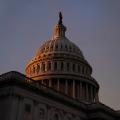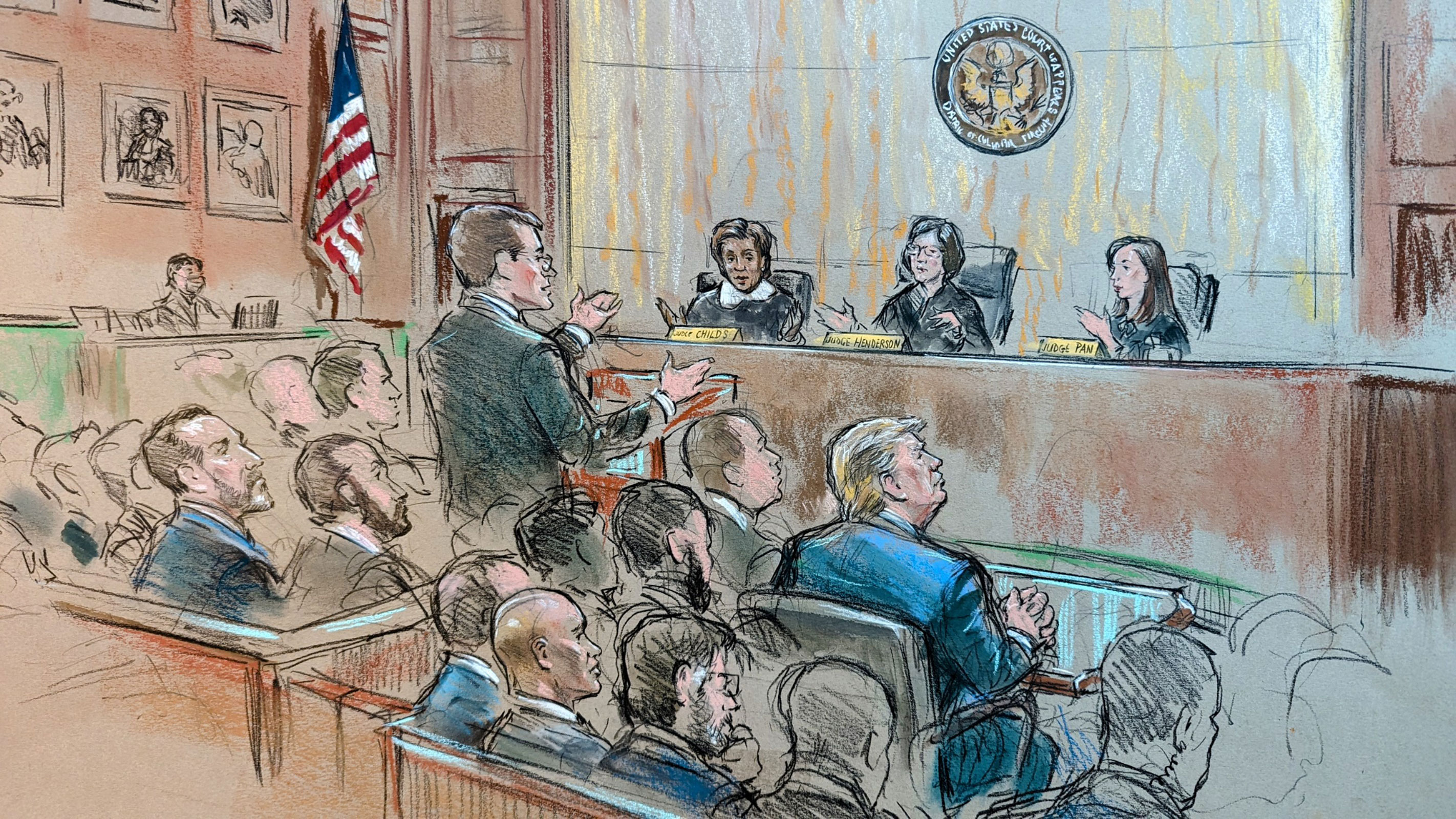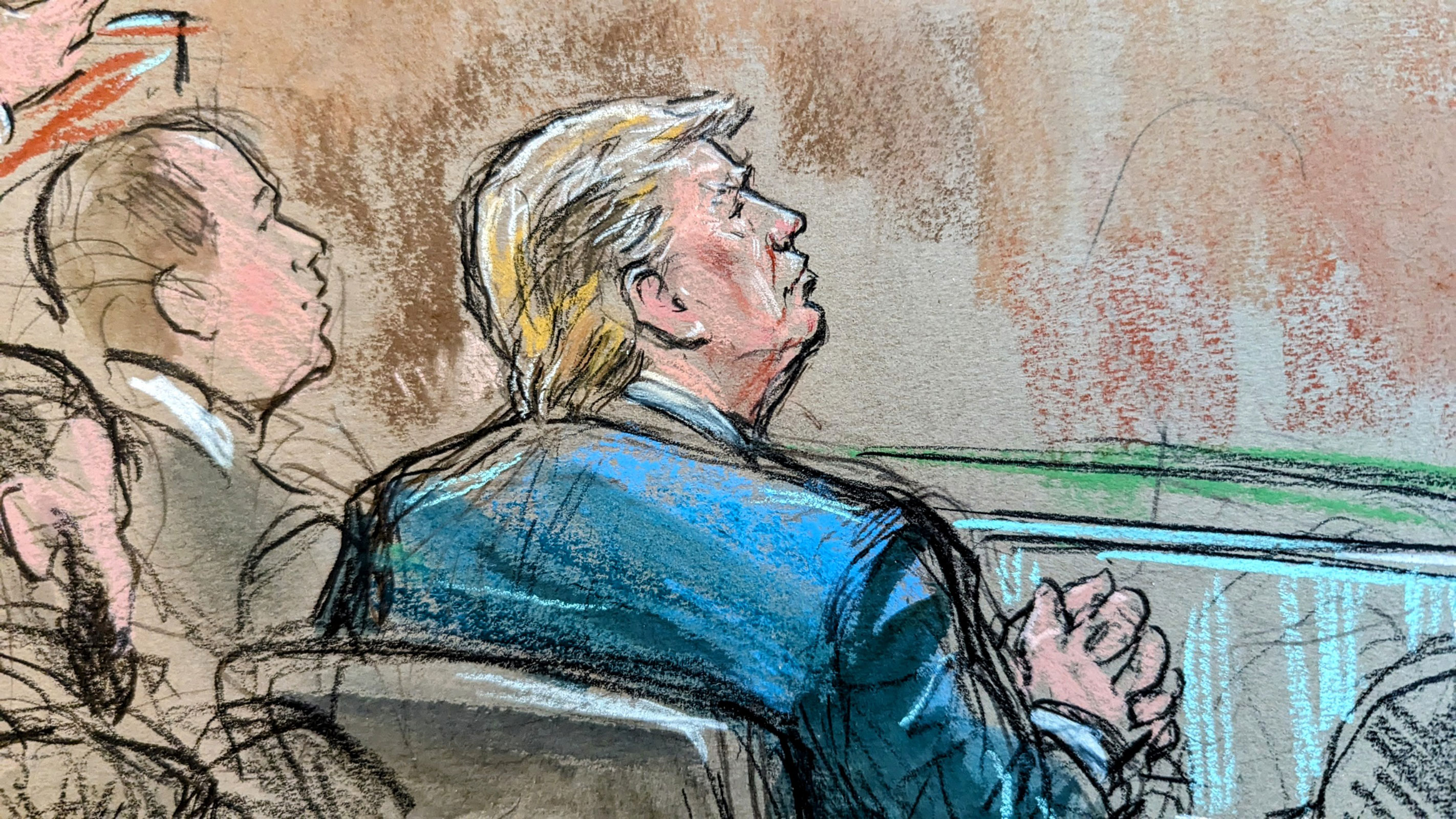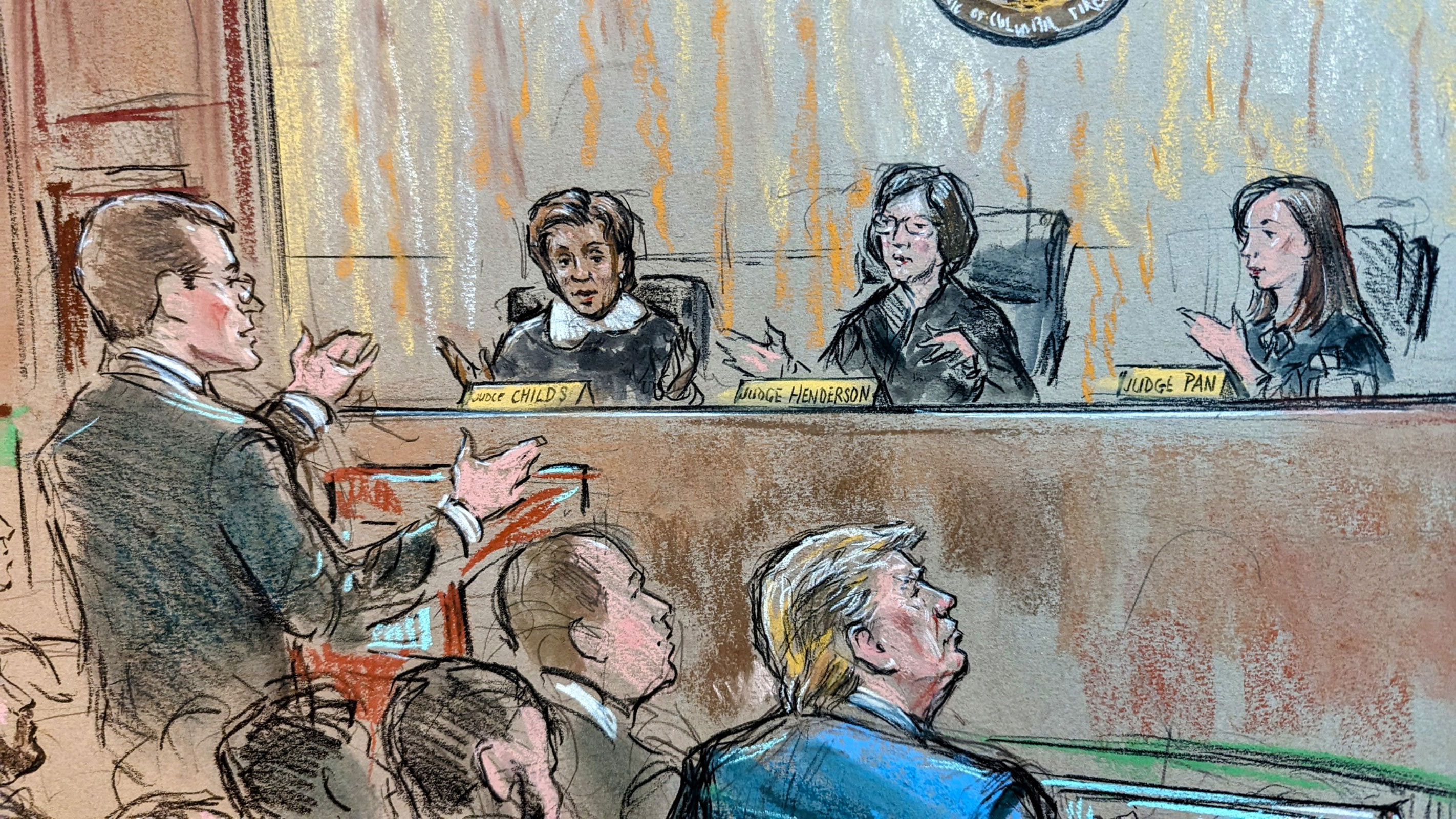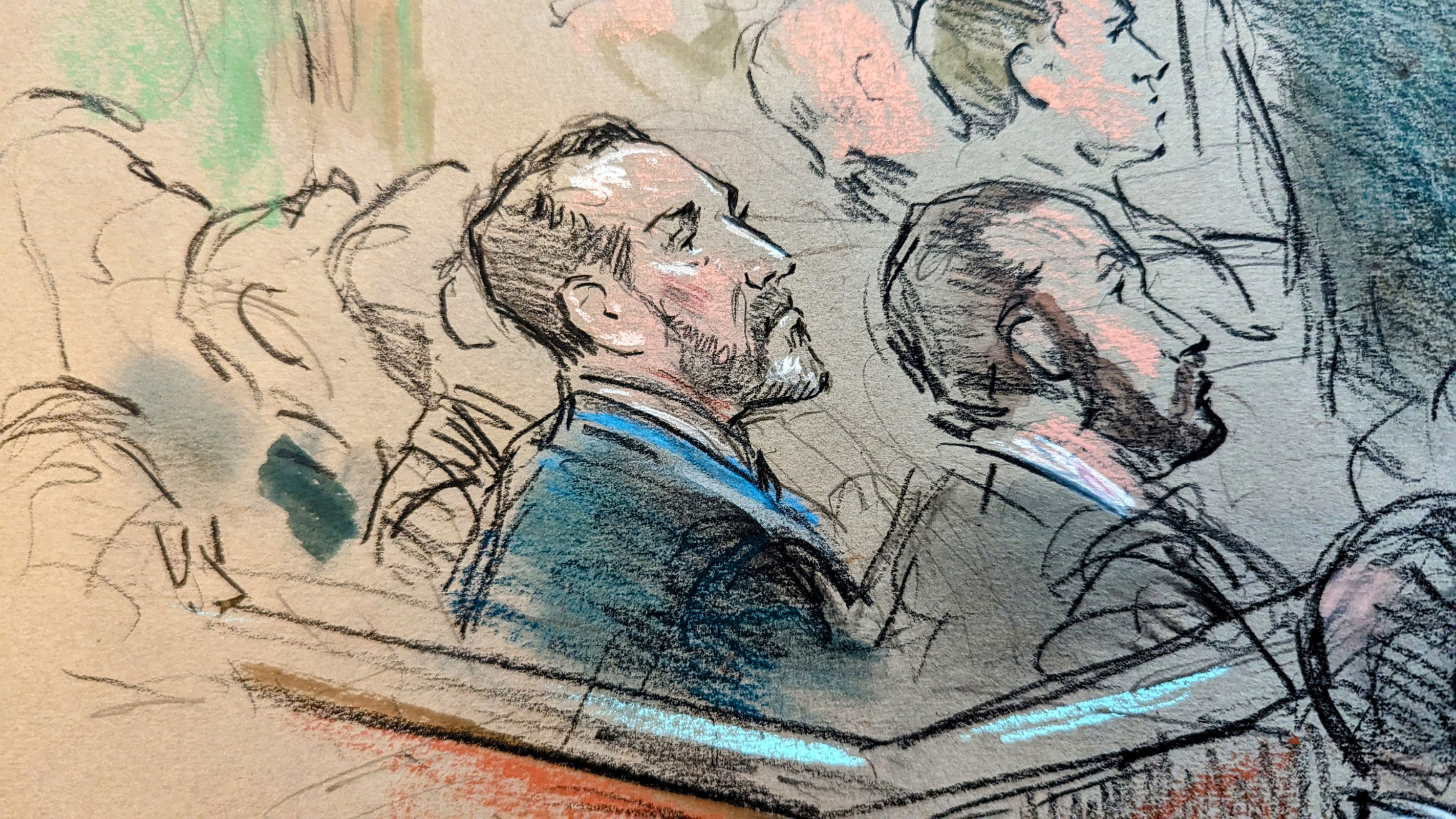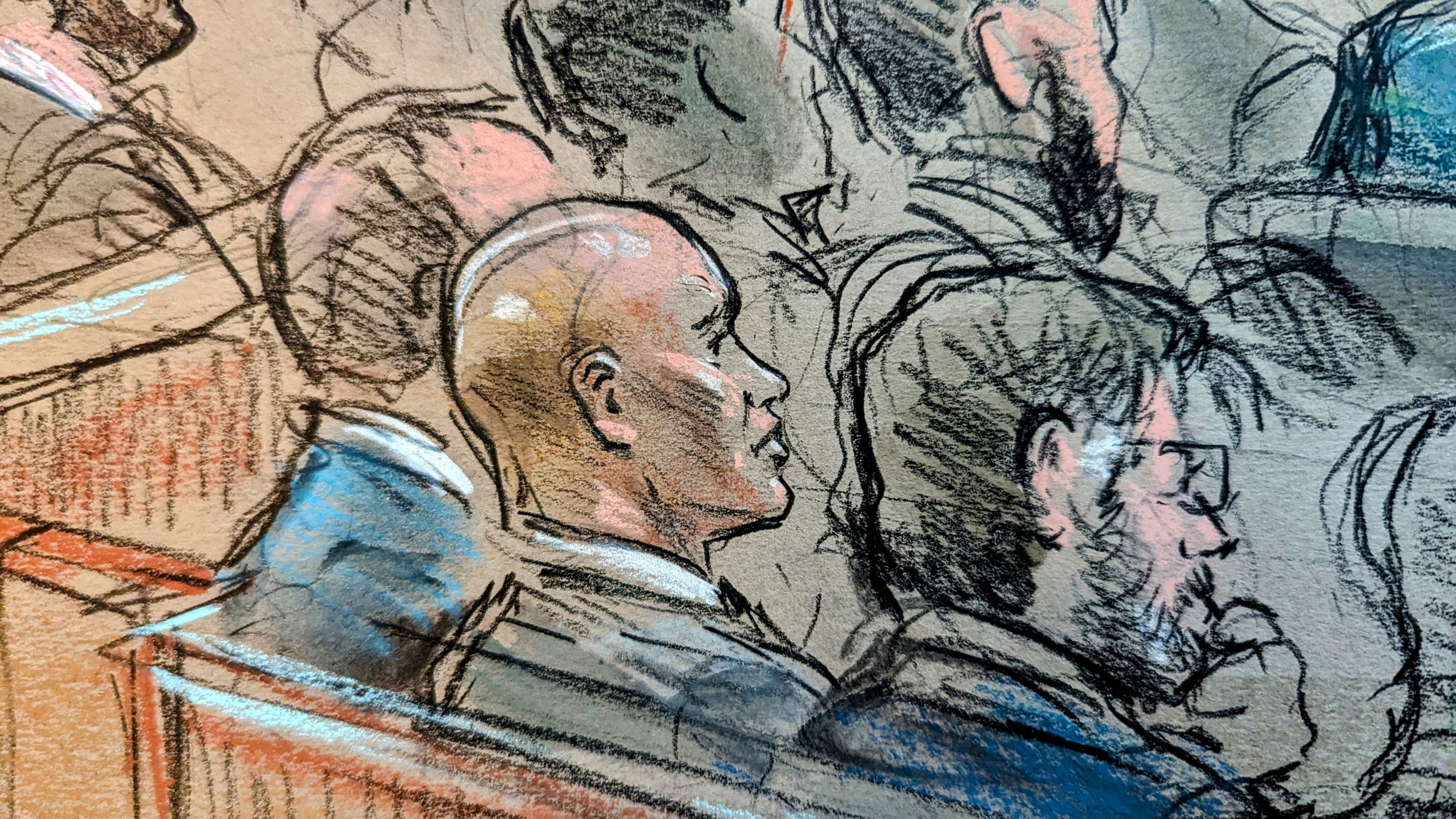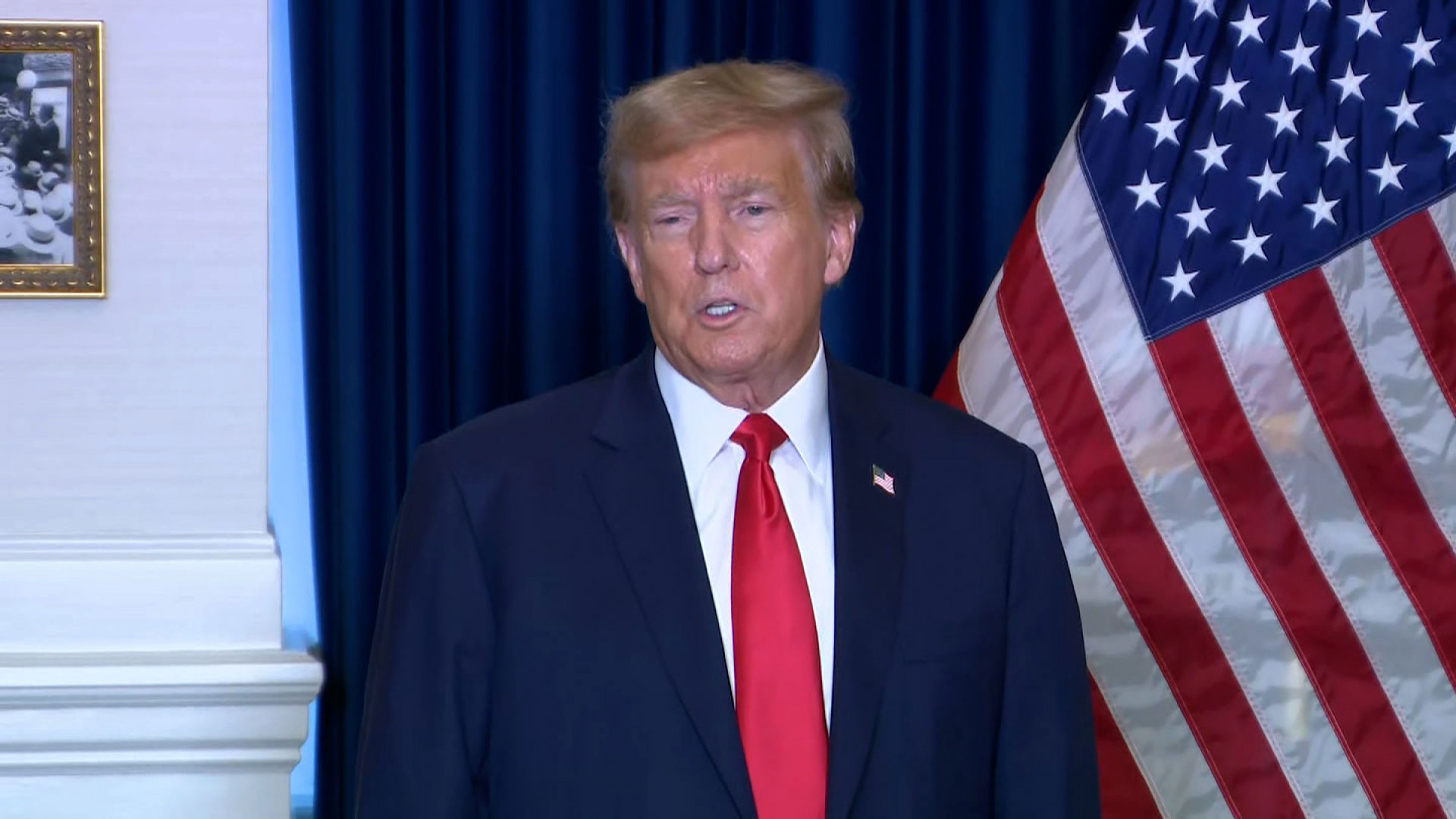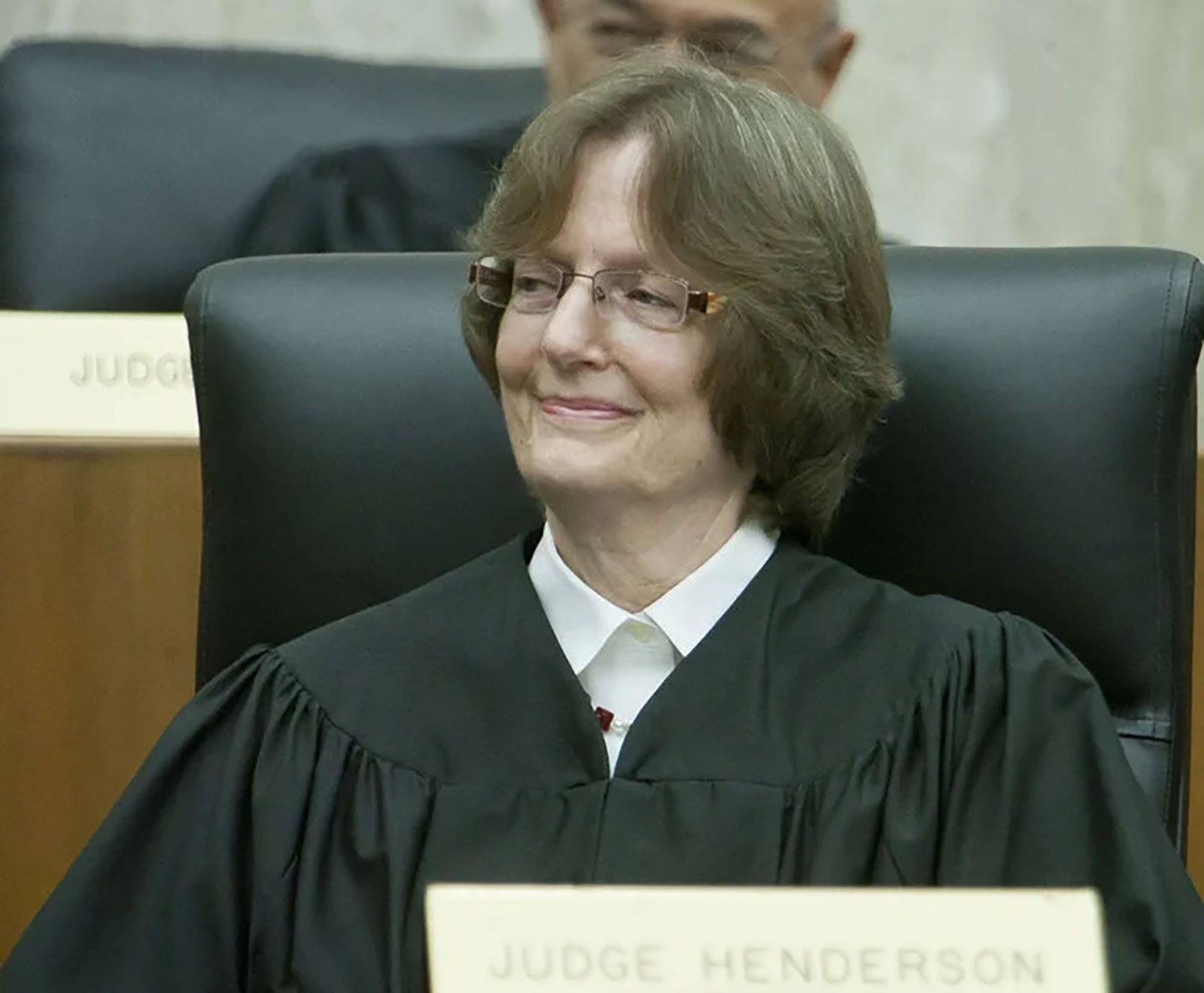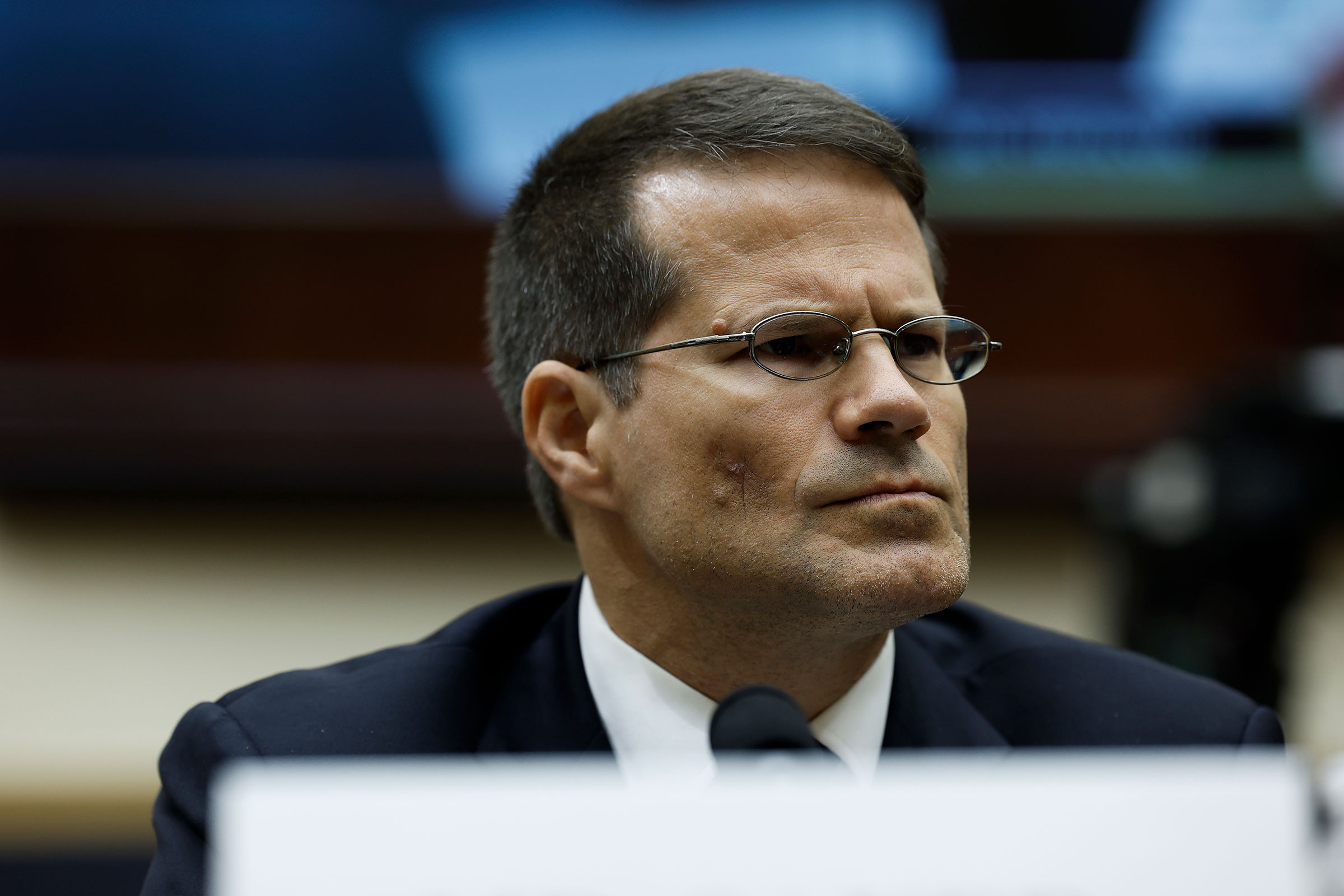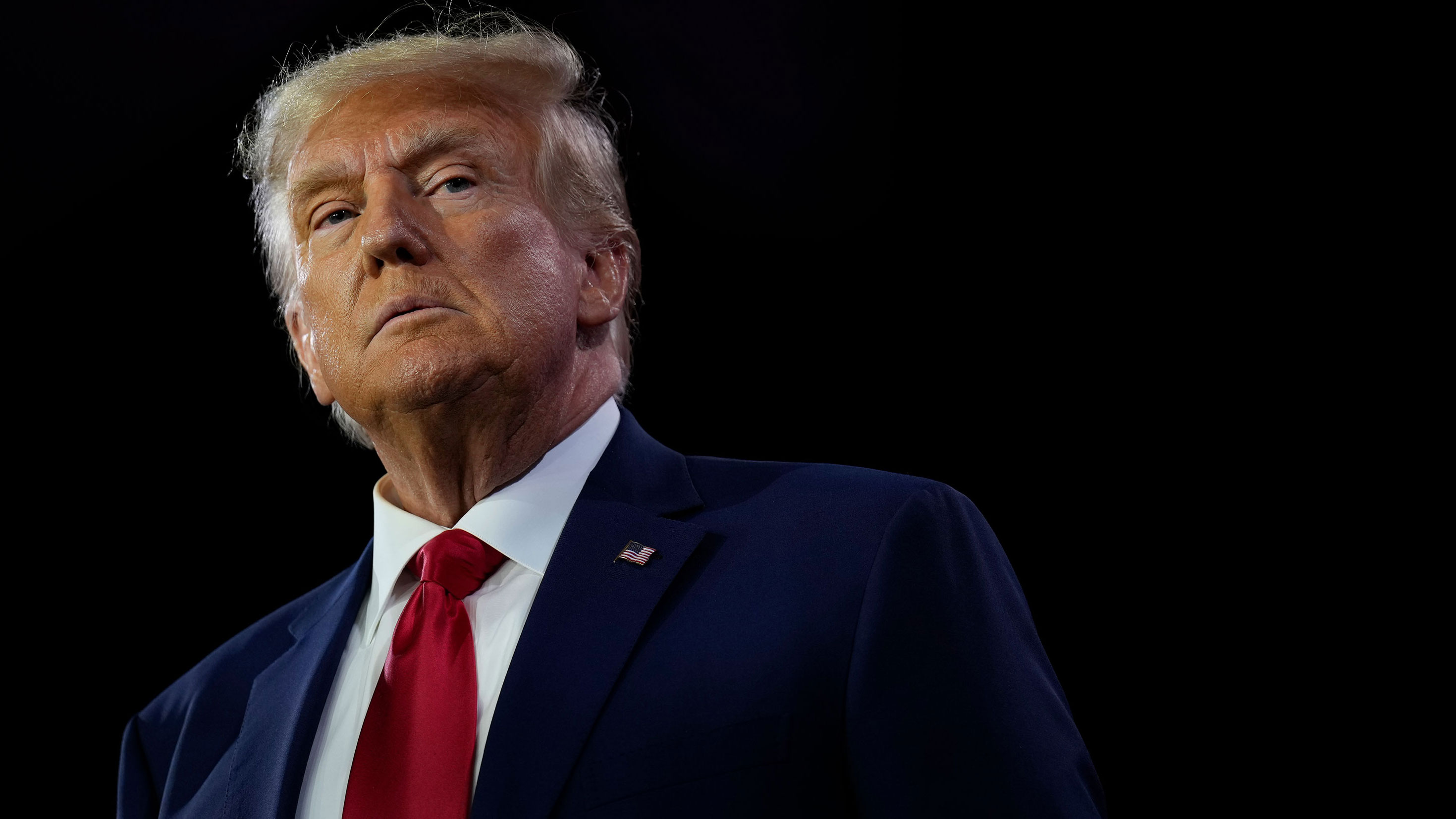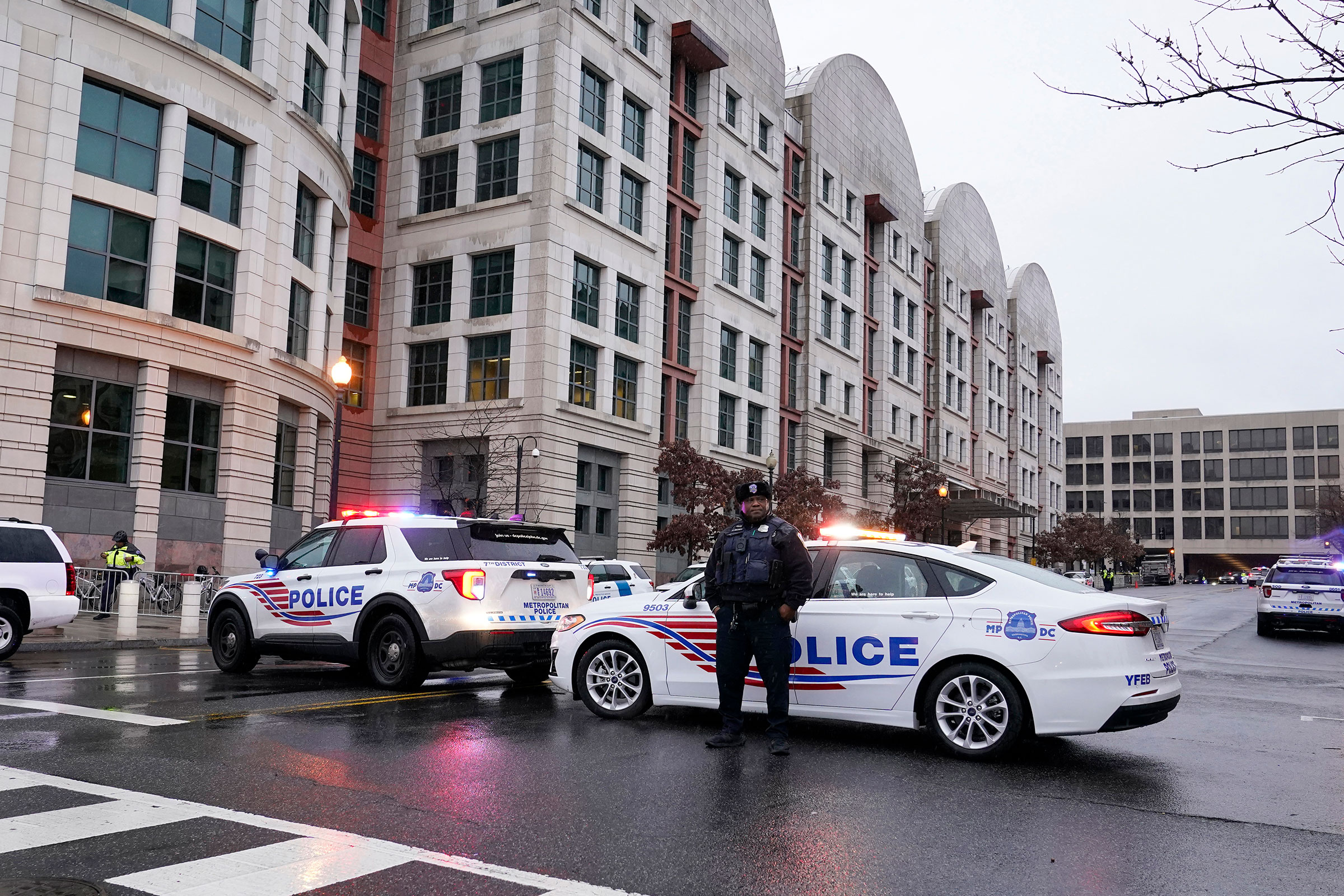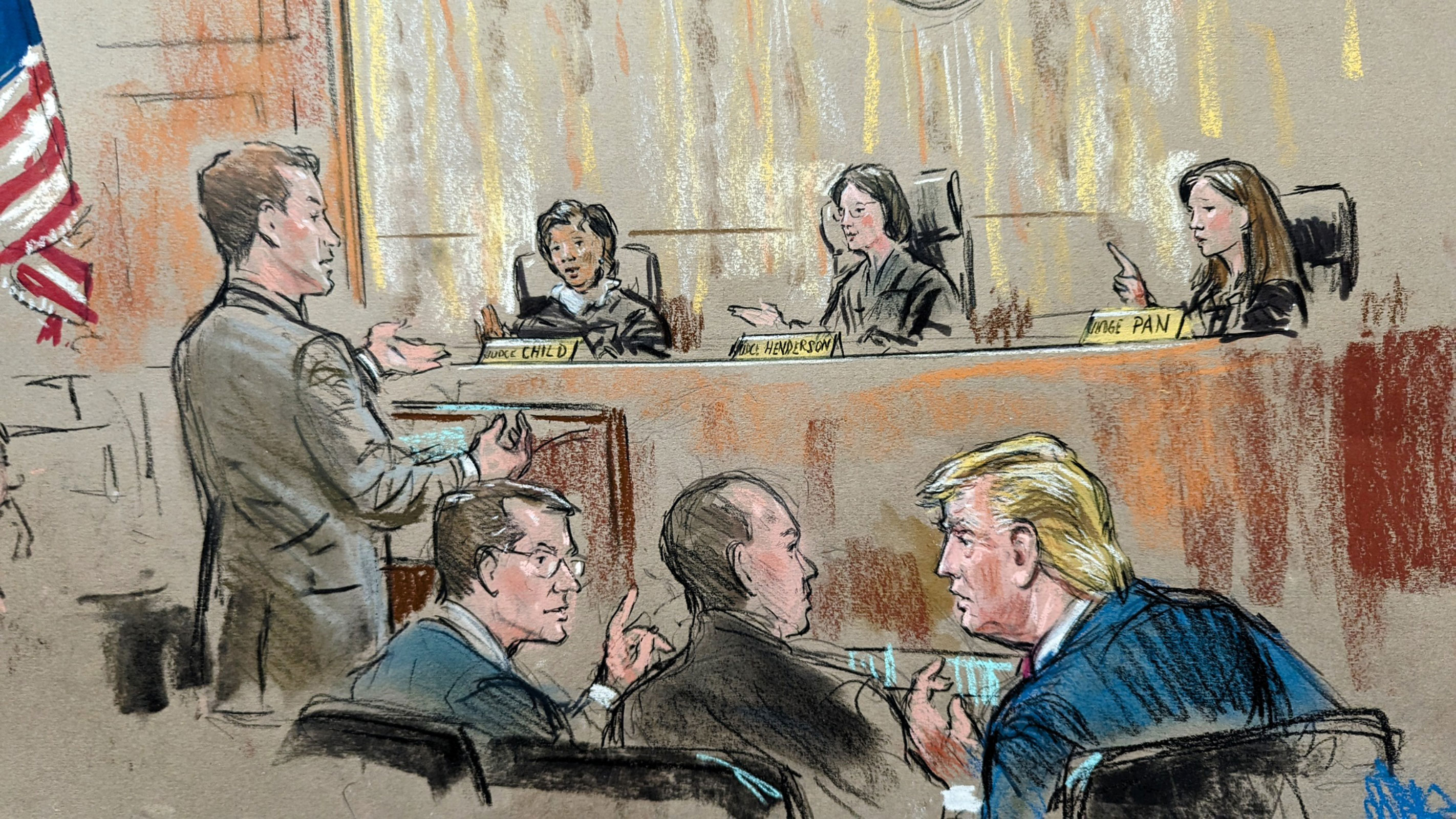
A federal appeals panel expressed deep skepticism Tuesday toward Donald Trump’s argument that he can’t be prosecuted for trying to overturn the 2020 election, raising the potentially extreme implications of absolute presidential immunity.
Trump’s lawyers argued that his federal election subversion indictment should be dismissed because he is immune from prosecution. But the three judges on the US Court of Appeals for the District of Columbia Circuit panel questioned whether this immunity theory championed by Trump’s lawyers would allow presidents to sell pardons or even assassinate political opponents.
Special counsel Jack Smith’s team argued that a president is not above the law, warning that allowing presidential immunity from prosecution would open a “floodgate” and saying that it would be “awfully scary” if there were no criminal mechanism to stop future president’s from usurping the vote and remaining in power.
Still, the judges also wondered if they even have jurisdiction to decide the question of presidential immunity at this point in the case. Trump is scheduled to go on trial in March for his role in trying to overturn the 2020 election. He has pleaded not guilty. Trump chose to attend the hearing – a reminder of the role that his four criminal indictments are playing in his presidential campaign.
The appeals court ruling is likely to set up a showdown over presidential immunity at the Supreme Court. The judges have not set a deadline but given the circumstances it’s unlikely they will take too much time.
Here are key takeaways from Tuesday’s oral arguments:
Judges worry about scope and impact of Trump’s immunity argument: The Circuit Court judges asked pointed questions of Trump attorney John Sauer over his claims that Trump has immunity because his actions after losing the 2020 election were part of his presidential duties. The judges also challenged him on his claim that Trump could only face criminal prosecution if he was first impeached and convicted by Congress for the same conduct. DC Circuit Court Judge Karen Henderson, an appointee of President George H.W. Bush, appeared dubious that Trump was acting within his official duties. “I think it is paradoxical to say that his constitutional duty to take care of the laws be faithfully executed allows him to violate criminal law,” Henderson said. Some of the judges pushed back on Trump’s immunity claims by highlighting the potentially dangerous path that it could lead to, with future presidents being able to brazenly break the law without consequences.
Key debate over whether Trump’s impeachment prevents prosecution: Trump’s attorney Sauer argued that a president can only be criminally charged and tried following a conviction for the alleged actions in the Senate. He had been acquitted by the Senate in February 2021. Judge Florence Pan, a President Joe Biden nominee, questioned Sauer over his contention that impeachment and conviction by Congress was required for any criminal prosecution – while also pressing him to acknowledge that he was conceding that there is a path for presidents to face prosecution. “Once you concede that presidents can be prosecuted under some circumstances, your separation of powers argument falls away, and the issues before us are narrowed to are you correct in your interpretation of the impeachment judgment clause?” Pan said.
Trump lawyer says immunity keeps shut ‘Pandora’s box’ for indicting presidents: Sauer painted a picture of what he called a dangerous “Pandora’s box” of indicting former presidents for actions they took while in office. He argued that special counsel Smith’s decision to bring charges against Trump could lead to similar prosecutions. He warned that this case could theoretically lead to charges against Biden, Barack Obama or George W. Bush. “To authorize the prosecution of a president for his official acts would open up Pandora’s box from which this nation may never recover,” Sauer said.


